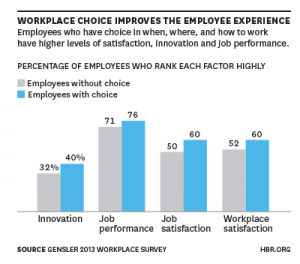
When starting your own business, one of the most difficult hurdles for some is figuring out what steps to take to establish and secure a sufficient accounting system.
Though hiring an accountant may not be feasible for your budget right away, here are ten things an accountant would tell you about starting your own business:
1. Choose an accounting system that works for you
A key step in setting up your accounting method is choosing between the cash system and the accrual system.
In the cash method, income is not accounted for until actual cash (or the equivalent thereof) is actually received. Under the accrual system, on the other hand, sales and expenses are noted at the moment the transaction occurs. For example, if you buy something on credit, and pay it off three months later, you’ll document that expense on the latter date.
2. Choose your fiscal year
Will you be reporting your taxable income according to the calendar year, or do you have a reason to set up your reports according to some other time cycle? If the latter, choose your fiscal year for filing, and stick to it. Think about your natural business cycle, and plan your fiscal year around the seasons, patterns and particularities of your new business.
Note: For some industries and in certain countries, you won’t have a choice.
3. Organise a bookkeeping system for your costs and income
There are no particular regulations regarding your method of bookkeeping as long as you are keeping accurate records of your income and expenditures, your records reflect the nature and practices of your business, and you keep proof (receipts) to back it all up.
But don’t settle for sloppy bookkeeping. Keeping clear records consistently is a crucial habit for long-term and low-stress success. This not only makes filing taxes much easier, but also provides you with an invaluable resource for good decision-making. By not hassling with untidy records, you’ll maintain a better understanding of your financial situation and make business decisions that reflect your situation and help you grow.
4. Choose your software
Accounting software will help you keep records of costs and expenses; some offer integration services with your bank account. Research accounting software to find one that fits your budget and suits your needs.

5. Get an accountant
If you’re working from a limited budget (as most new business owners are), you may not be able to do this right away but you should definitely keep it in mind. Getting an accountant later in the game will be a nice reward for all the time you push through the accounting on your own while your business takes off.
6. Get to know your taxes and deductibles
Your business structure is going to tell you a lot about how to handle your taxes. Learn what expenses are deductible and find tax credits and benefits that your business might be eligible for. Know which taxes you’ll need to pay, and file for the licenses you need in order to pay them.
7. Make a calendar, and mark it up
Take note of government due dates, like filing dates for taxes and license renewals. Mark your paydays, personal bookkeeping due dates and important to-do items.
8. Separate your business finances from your personal ones
The easiest way to do this is to open a business account, attach a debit card to it, and be vigilant about keeping only business expenses on it. You’d only be wasting time if you have to keep reimbursing your account for non-business-related expenses, or vice versa.
9. Keep track of your employees
Even if you’re the only one, get into the habit of keeping track of your time and labor, as well as the perks and benefits you intend to offer your employees when you finally have some.

10. Create a system so that you get paid
Following through with sales, invoices and payments is an obvious but key element to running a successful business. By establishing a solid system while you’re starting up, you’ll be less overwhelmed when your business picks up, and less likely to make mistakes that lead to you missing a pay-out or overlooking an invoice.
Stay organised, be consistent, and work smart. Use your resources, and hold on tight until your new business can afford the accountant of your dreams.
Business & Finance Articles on Business 2 Community(34)









